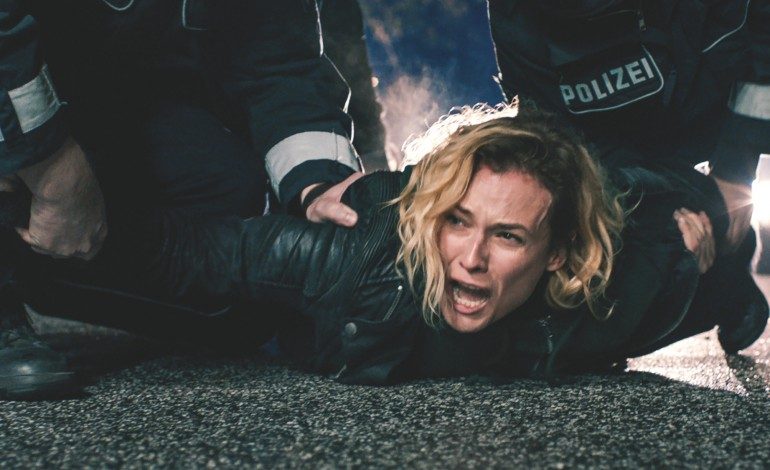

Fatih Akin’s In the Fade, which takes its name from a Queens of the Stone Age song, won the 2018 Golden Globe for Best Foreign Language Film, largely because of Diane Kruger’s heart-wrenchingly honest performance. Kruger portrays Katja Sekerci, a woman devastated by the loss of her husband and son in a racially motivated terrorist bombing. Katja, during a lengthy trial, is forced to relive her trauma and confront the Nazi couple that murdered her family. Due to insufficient evidence, justice is not served by the court system, and Katja intends to take matters into her own hands.
In the Fade is the not the first time Kruger has confronted Nazis as she starred in Quentin Tarantino’s Inglourious Basterds. Although incredibly different (In the Fade’s Nazis couldn’t be further from Tarantino’s satirical caricatures), both films reinvent a similar pulpy subject matter. The history of female revenge cinema is often clouded in misogyny. In the ‘70s, films like Ms .45 and I Spit on Your Grave dominated grindhouse theaters, but many of the imitators that followed were one-dimensional male power fantasies. It wasn’t until the 2000s, with films like Lady Vengeance, The Girl with the Dragon Tattoo, and The Brave One, did female leads in revenge films possess greater nuance and agency.
In the Fade acknowledges exploitation cinema with its unflinching amorality but simultaneously explores Katja’s unfathomable grief; the film isn’t completely satisfying in both regards, however. Akin certainly elevates a plot that could have devolved into senseless violence, but the revenge aspect feels like an afterthought. In fact, Katja doesn’t consider direct action until the final act.
Much of In the Fade is spent in the courtroom, where Kruger delivers a powerhouse performance. She seethes with rage and despair as the remorseless couple who killed her family deflects charge after charge. These scenes, which explore the insufficiencies of the German justice system, are the film’s core. Although the courtroom segments are procedural, Kruger’s nuanced performance is anything but mechanical. She elevates sequences that could have been lifeless if carried by a less experienced actress.
Ultimately, In the Fade’s themes are eerily prescient. It’s only been a few months since white supremacists marched in Charlottesville, Virginia. Hate-motivated terrorist attacks rarely leave the news cycle, and in that sense, In the Fade, by depicting one woman’s journey from mourner to retaliator, reveals the utter devastation caused by violent bigotry. However, the climax left more to be desired. Katja’s actions felt somewhat illogical, and the final scene is visually powerful but emotionally hollow.
Verdict 3.5 out of 5
Those hoping to see a visceral and violent revenge film will be sorely disappointed, but filmgoers looking for one of 2017’s best performances need not look further. Kruger once again proves why she is a force to be reckoned with, and Akin’s controlled direction beautifully and tragically renders a difficult subject matter.


